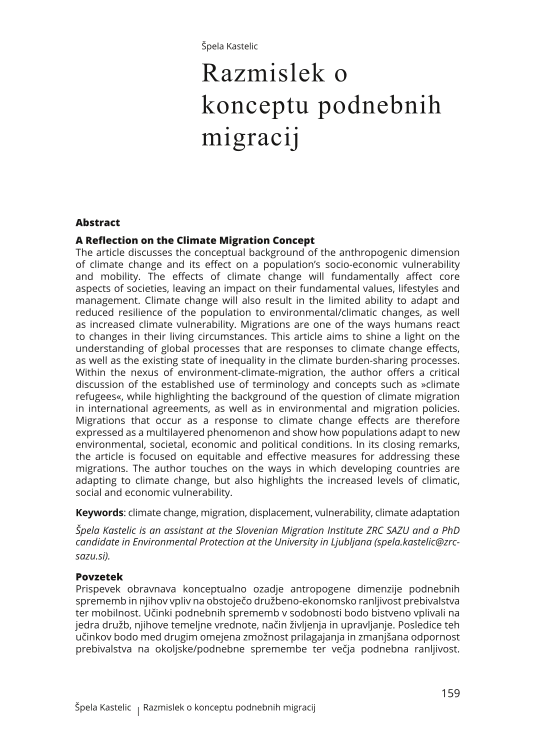The article discusses the conceptual background of the anthropogenic dimension of climate change and its effect on a population’s socio-economic vulnerability and mobility. The effects of climate change will fundamentally affect core aspects of societies, leaving an impact on their fundamental values, lifestyles and management. Climate change will also result in the limited ability to adapt and reduced resilience of the population to environmental/climatic changes, as well as increased climate vulnerability. Migrations are one of the ways humans react to changes in their living circumstances. This article aims to shine a light on the understanding of global processes that are responses to climate change effects, as well as the existing state of inequality in the climate burden-sharing processes. Within the nexus of environment-climate-migration, the author offers a critical discussion of the established use of terminology and concepts such as »climate refugees«, while highlighting the background of the question of climate migration in international agreements, as well as in environmental and migration policies. Migrations that occur as a response to climate change effects are therefore expressed as a multilayered phenomenon and show how populations adapt to new environmental, societal, economic and political conditions. In its closing remarks, the article is focused on equitable and effective measures for addressing these migrations. The author touches on the ways in which developing countries are adapting to climate change, but also highlights the increased levels of climatic, social and economic vulnerability.




